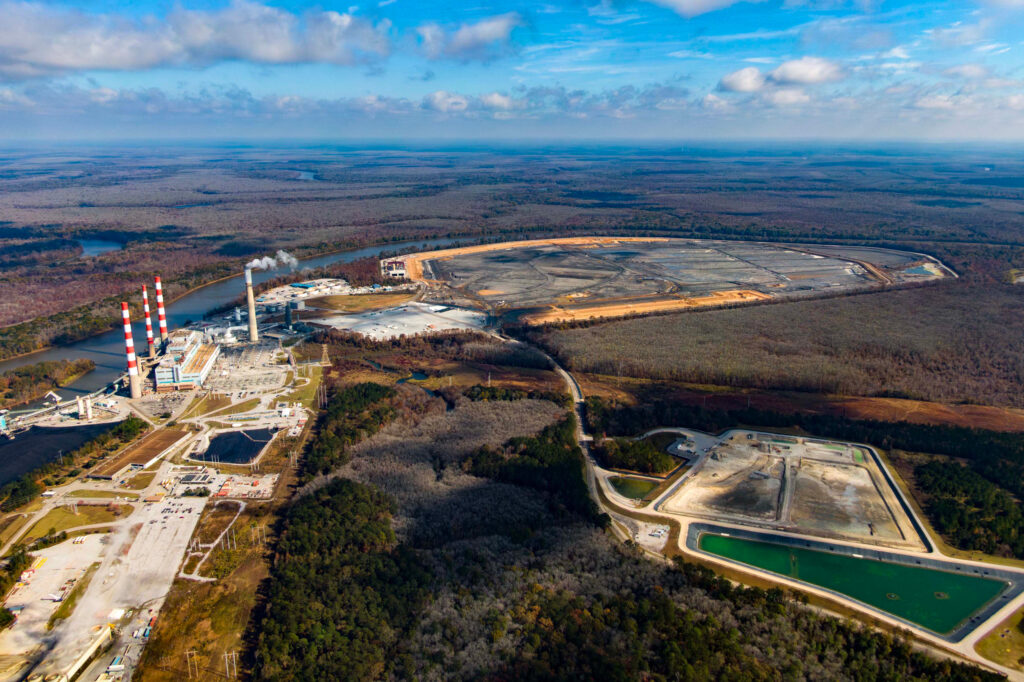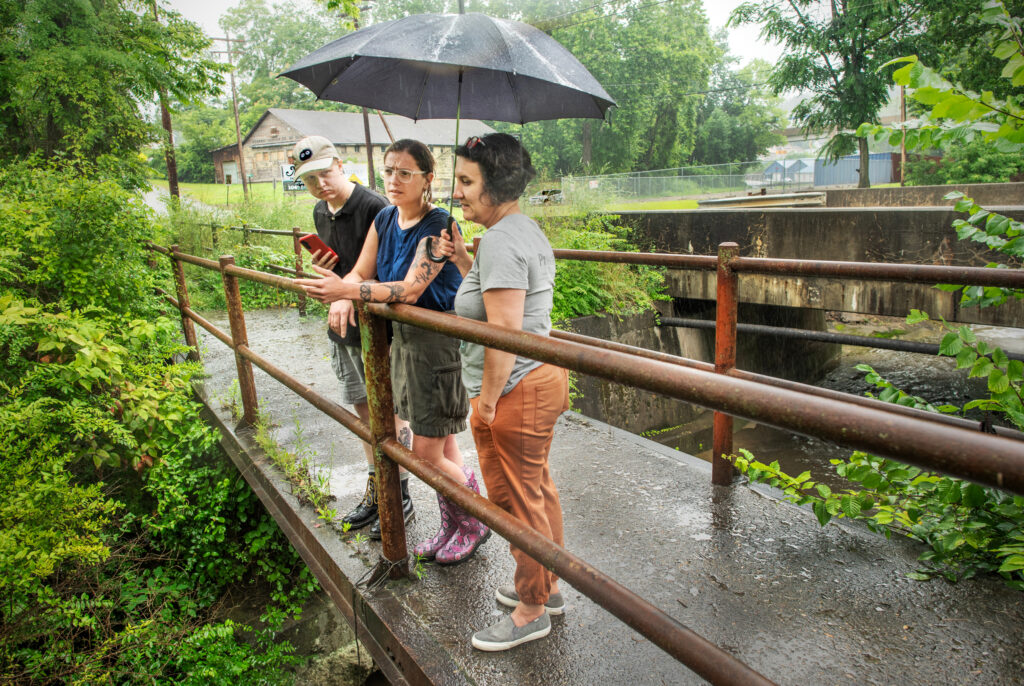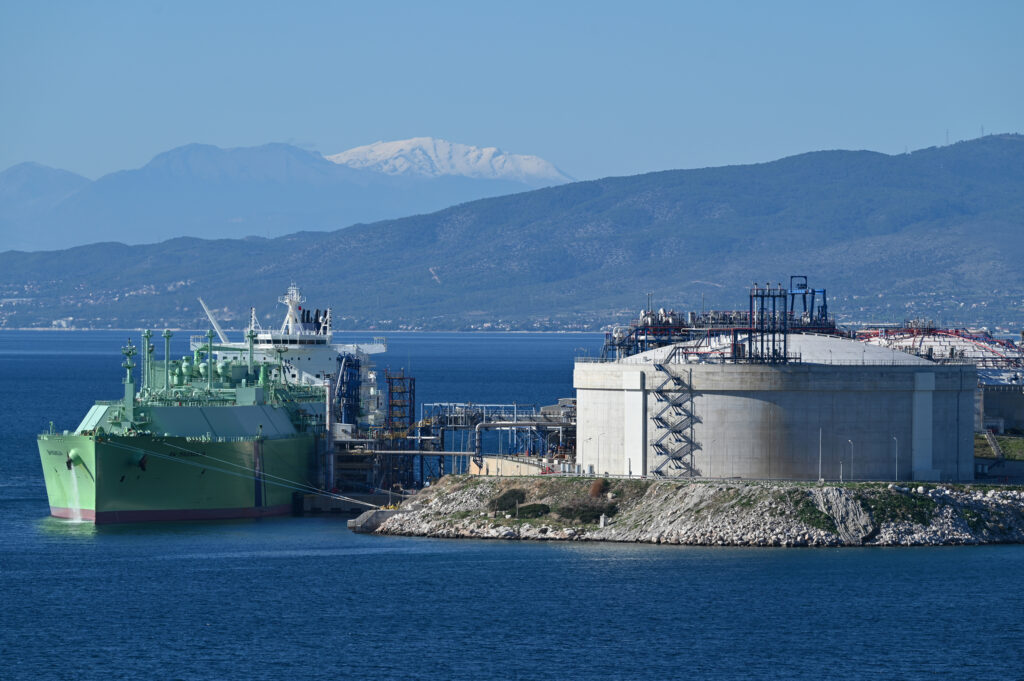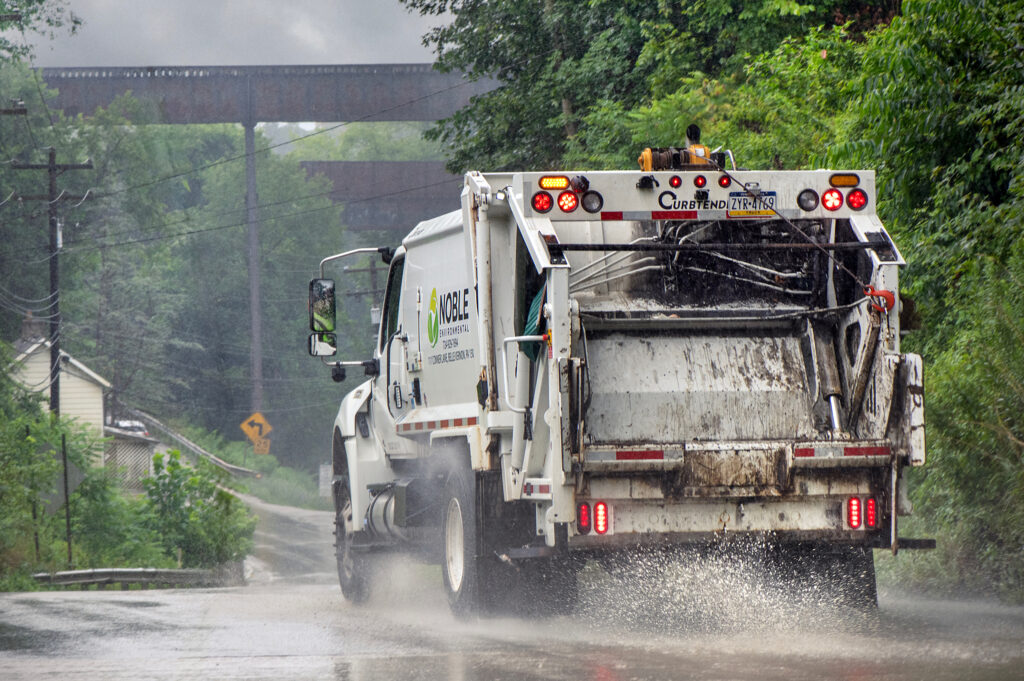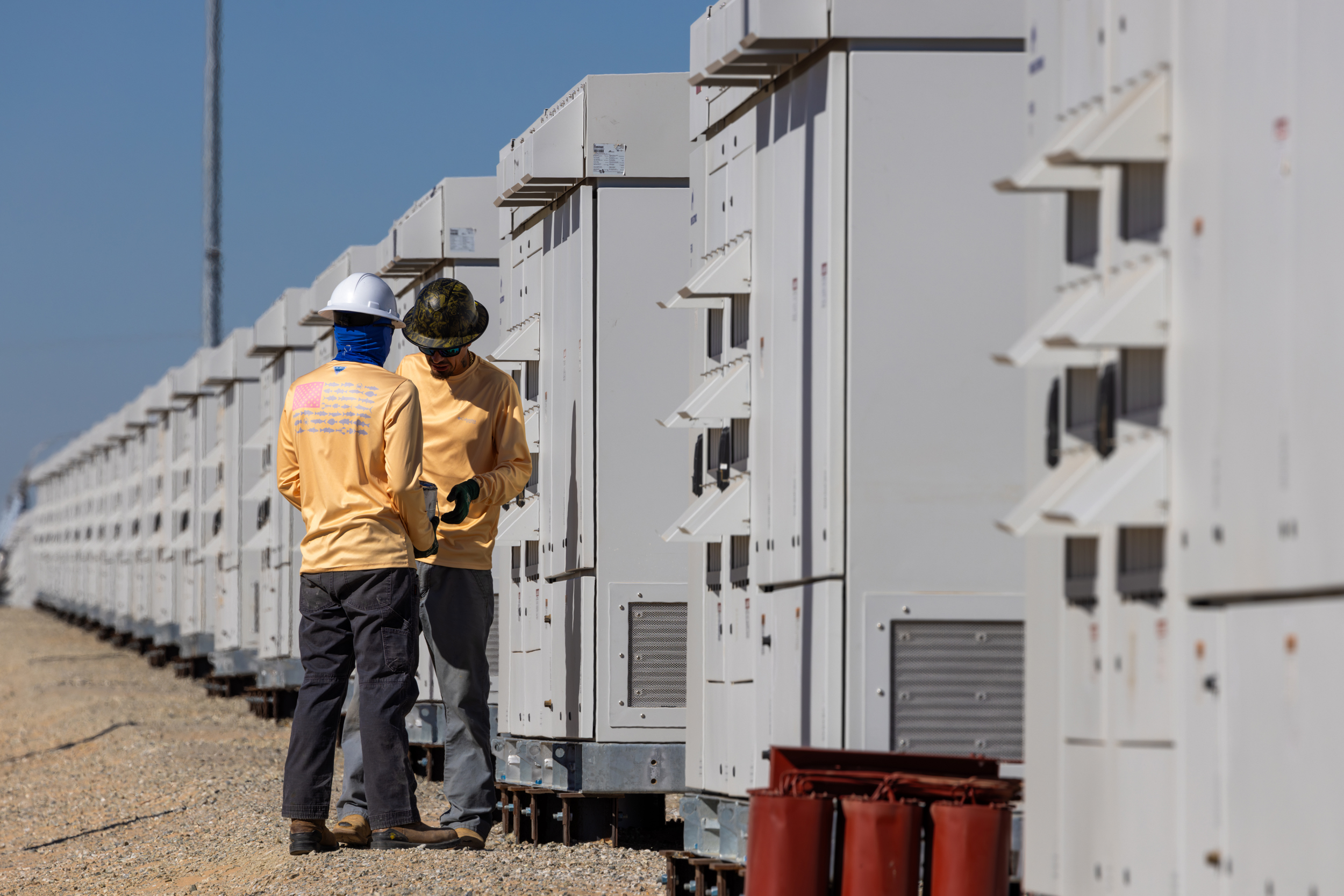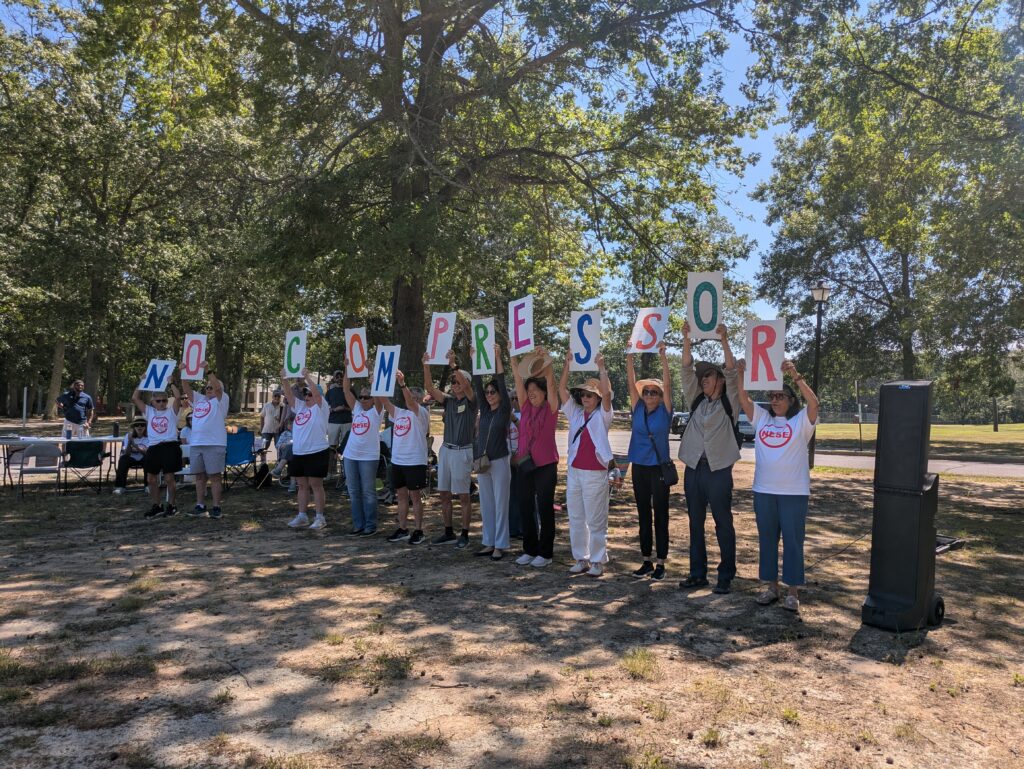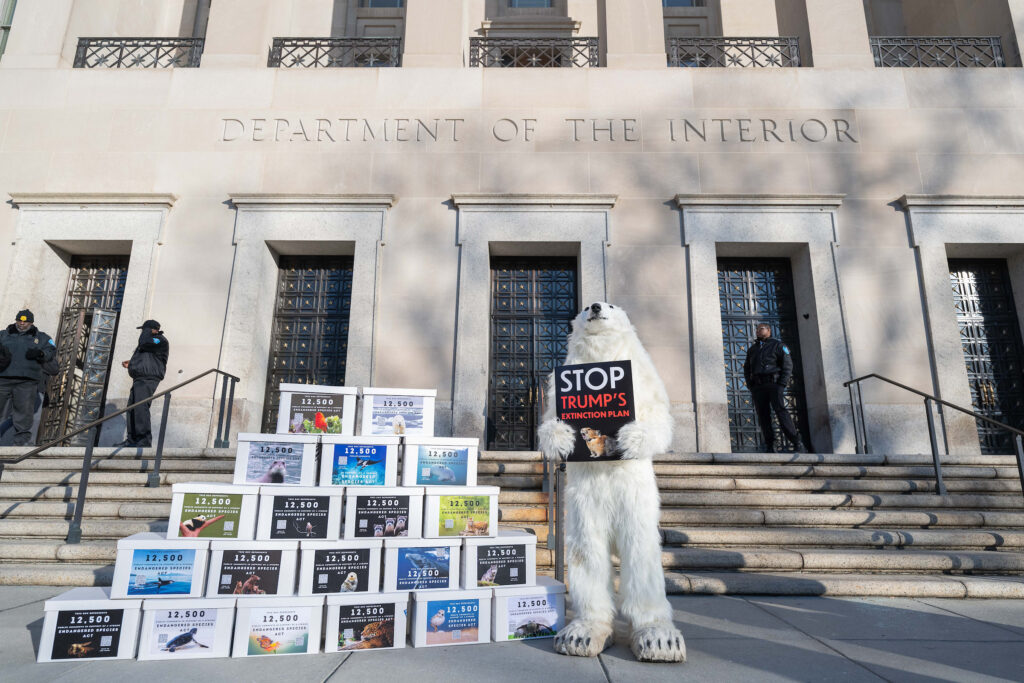A provision slipped into President Trump’s so-called One Big Beautiful Bill Act would provide millions of dollars in tax credits to U.S. companies that produce metallurgical coal—coal largely exported overseas for use in foreign steelmaking.
The language was added to the 887-page tax and spending-cut bill before its narrow passage by the U.S. Senate on Tuesday, though it’s unclear which senator or senators pushed the addition of the pro-coal language.
After an all-night session and hours of wrangling, much of it due to a divide within the GOP over energy policy, the U.S. Senate passed the legislation by a vote of 51-50, with Vice President JD Vance casting the tie-breaking vote. The bill now moves to the House, which will need to agree to the Senate’s changes before the legislation lands on President Donald Trump’s desk to be signed into law.
The key Republican holdout, Sen. Lisa Murkowski of Alaska, ultimately voted for the bill but told reporters she hoped the House would send it back to the Senate for more work instead of trying to meet Trump’s self-imposed July 4 deadline.
We’re hiring!
Please take a look at the new openings in our newsroom.
See jobs
Murkowski was one of at least five Republicans who were working to ease the phase-out of federal incentives for clean energy. They were able to jettison an excise tax that was slapped on wind and solar during weekend negotiations over the legislation, but the other improvements for clean energy they achieved were modest. The bill, as passed by the Senate, protects solar and wind projects from a phase-out of tax credits if they begin construction less than one year after the legislation’s enactment. But the legislation still requires that the projects be placed in service before 2027 to remain eligible for favorable tax treatment, which puts a cloud of uncertainty over clean energy projects, since completion dates sometimes are outside of developers’ control.
Fossil fuels fared better in the legislation, with provisions to mandate at least four oil and gas lease sales in the Arctic National Wildlife Refuge—an important issue to Murkowski—added by the end of the Senate’s marathon session.
The subsidy for metallurgical coal was another win for fossil energy producers. It provides for a 2.5 percent tax credit for the cost of producing metallurgical coal “regardless of whether such production occurs inside or outside of the United States” and designates the dirty fuel a “critical mineral.”
An Inside Climate News analysis of data from the U.S. Energy Information Administration suggests the provision could amount to an annual tax benefit of between $200 million to $300 million across the met coal industry.
Around three-quarters of met coal produced in the U.S. is shipped overseas for use in steelmaking, according to federal data. In Alabama, more than 90 percent of met coal is shipped to foreign markets.
The White House has not yet responded to a request for comment on the subsidy.
“It’s something that hasn’t been debated before and was kind of airdropped in at the last minute,” Cameron Walkup, associate legislative representative for Earthjustice, an environmental nonprofit, said of the met coal subsidy.
Few senators even mentioned the provision during an extensive overnight vote-a-rama leading to the bill’s ultimate passage, but Sen. Ron Wyden, a Democrat from Oregon, said that the measure left him shocked.
“It is so backward it leaves you slack jawed,” he said on the Senate floor overnight Monday.
Alan Zibel, a research director at Public Citizen focusing on energy and environmental issues, said that on the whole, the bill walks back a common-sense commitment to investing in the clean energy transition and doesn’t, on its face, comport with an “America First” agenda.
“It’s highly ironic that we’re cutting off funds for American produced renewable energy—wind and solar—while subsidizing American exports of coal to other countries for producing steel.”
Lukas Shankar-Ross, deputy director of climate and energy justice at Friends of the Earth, went further.
“Nothing says America First like an export subsidy,” he said. Shankar-Ross was one of the first to notice the subsidy’s quiet addition to the bill.
But an America First policy agenda doesn’t seem to be what’s motivating provisions like the met coal subsidy, he argued.
“You could argue that there is a contradiction here, but only if you think that America First is meaningful—that that’s actually what is guiding the policy here,” he said. “I think that a much more plausible explanation is what all of Trumpism seems reducible to, which is cronyism and favors for friends.”
Senate passage of the subsidy comes just months after Secretary of the Interior Doug Burgum visited two Alabama met coal mines, touting the administration’s commitment to “clean, beautiful coal” and its plans to roll back regulation.
“Mine, Baby, Mine!,” the Interior Department’s press office swiftly posted on social media following Burgum’s visit.

What Burgum didn’t mention on Friday was Warrior Met Coal’s checkered safety and environmental record, which includes thousands of federal safety violations issued under both Republican and Democratic administrations. He also didn’t mention the death of Aaron Haley, a 34-year-old miner killed on the job in 2023 because, according to an investigative report by federal safety officials, Warrior Met did not keep equipment in safe operating condition.
Missing, too, from Burgum’s comments was any recognition that the metallurgical coal produced by Warrior Met is not used to power American homes or businesses. Instead, the vast majority of the product is shipped abroad through the Port of Mobile, largely to countries in South America and Asia for steelmaking.
Warrior Met did not respond to a request for comment.
This story is funded by readers like you.
Our nonprofit newsroom provides award-winning climate coverage free of charge and advertising. We rely on donations from readers like you to keep going. Please donate now to support our work.
Donate Now
Contrary to Trump and Burgum’s clean coal assertions, coal is the dirtiest of fossil fuels.
If completed, Warrior Met’s Blue Creek mine expansion is set to be one of the largest coal buildouts in Alabama history. If approved by state and federal regulators, the project is expected to increase Warrior Met’s coal production by up to 60 percent. Taxpayer-funded support for buildout and the infrastructure needed to bring the company’s met coal to market may top $400 million, according to state and federal documents.
As part of the expansion, Warrior Met is seeking the federal government’s approval to mine thousands of acres of publicly owned coal in Alabama. A recently released draft environmental impact statement concluded that the coal mining expansion would significantly increase greenhouse gas emissions that contribute to the dangerously warming climate and put nearby residents at increased risk of property damage and explosions. Members of the public have until July 21 to submit comments on that 190-page draft.


Chelsea Barnes, director of government affairs and strategy for Appalachian Voices, said she’s concerned the subsidy will incentivize additional domestic coal production that will ultimately have serious environmental and health implications for Americans.
“Black lung is on the rise, and the Trump Administration has postponed rules that were meant to prevent more black lung disease,” she said. “If we’re mining more coal, that will mean more black lung disease.”
Ultimately, Shankar-Ross said that the subsidy amounts to a direct stream of revenue for coal companies paid for on the backs of the country’s most vulnerable—a move, he added, that threatens to delay the necessary transition to green steel production and that compounds the health impacts mining has already caused across America’s coalfields.
“Every time this bill changes, it gets dirtier and worse for the American public,” he said. “This is a subsidy to export coal paid for with cuts to Medicaid and food stamps. It cannot be emphasized enough how monstrous that is.”
About This Story
Perhaps you noticed: This story, like all the news we publish, is free to read. That’s because Inside Climate News is a 501c3 nonprofit organization. We do not charge a subscription fee, lock our news behind a paywall, or clutter our website with ads. We make our news on climate and the environment freely available to you and anyone who wants it.
That’s not all. We also share our news for free with scores of other media organizations around the country. Many of them can’t afford to do environmental journalism of their own. We’ve built bureaus from coast to coast to report local stories, collaborate with local newsrooms and co-publish articles so that this vital work is shared as widely as possible.
Two of us launched ICN in 2007. Six years later we earned a Pulitzer Prize for National Reporting, and now we run the oldest and largest dedicated climate newsroom in the nation. We tell the story in all its complexity. We hold polluters accountable. We expose environmental injustice. We debunk misinformation. We scrutinize solutions and inspire action.
Donations from readers like you fund every aspect of what we do. If you don’t already, will you support our ongoing work, our reporting on the biggest crisis facing our planet, and help us reach even more readers in more places?
Please take a moment to make a tax-deductible donation. Every one of them makes a difference.
Thank you,




